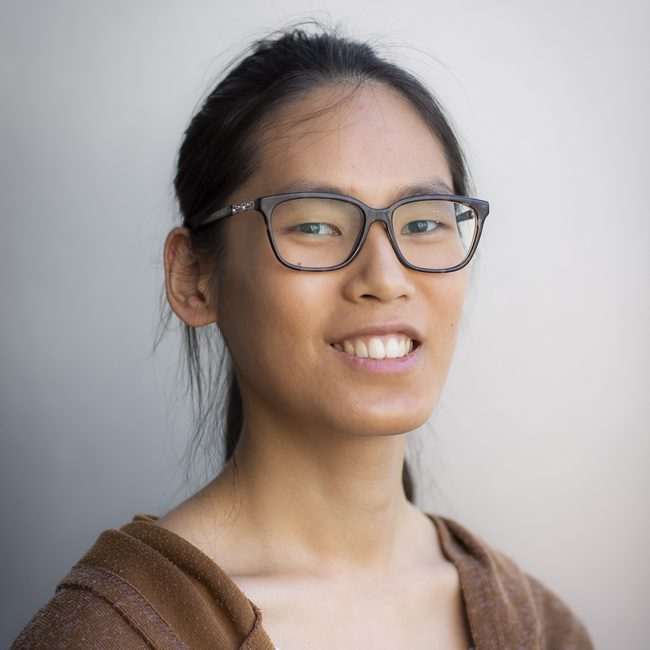
Jeryn Chang
The University of Queensland, Australian Institute for Bioengineering and Nanotechnology
Growing up, I’ve always been fascinated by science and its potential to create solutions for complex problems. I initially studied genetics during my undergraduate years, but as I transitioned to postgraduate studies, I realised that Bioinformatics was a better fit for me. I currently study a Master of Bioinformatics at the University of Queensland. I did my first research project with Associate Professor Jessica Mar, where I benchmarked various scRNA-seq batch-correction packages. After I graduate, I hope to complete a PhD and make a significant contribution to science.
Can you give me a quick overview of the type of mathematics you are studying and its potential impacts for the broader community
I study Bioinformatics. I see it as an intersection of molecular biology, mathematics and software engineering. Bioinformatics works to understand large quantities of biological data, where simple eyeballing may not be possible. This has the potential of providing more powerful inferences in molecular biology and clinical research, which could greatly benefit the biotechnology and biomedical sector, and conservation efforts.
For the past six months, I’ve been benchmarking various scRNA-seq batch-correction packages. Each package provides a unique mathematical and computational approach for correcting batch-effect in single-cell data. The goal is to inform researchers on which package is most appropriate for their data, such that batch-effect is removed, and the desired variation is preserved.
What did you want to be when you grew up? If not mathematics research, what would have been?
I wanted to become a scientist. I’ve always been curious about how the world around me works. The idea that I could be at the frontline of novel human knowledge was exciting to me. I didn’t know I would be studying Bioinformatics, but as I progressed in my undergraduate studies, I realised that this was something I was going to pursue.
You attended AMSI BioInfoSummer, what drew you to this event? What was the most valuable part of AMSI BioInfoSummer for you in terms of furthering your career in mathematical sciences?
When I first heard of AMSI BioInfoSummer, I was excited because I knew I was going to meet a lot of like-minded people who are in a similar situation as I am – a student just starting out in Bioinformatics. Looking at the online program, I saw that I was going to learn a lot about what is happening in the field right now across the globe. In the end, I found networking to be the best aspect of AMSI BioInfoSummer. I got to meet students working on a large variety of projects around Australia. I got to know their story, their hopes and dreams. It was inspiring to know that there are so many people on a similar journey as I am.
In what ways has the experience impacted your maths studies? Did this event lead to any new contacts, projects, collaborations?
I made many new contacts during the symposium, especially on Twitter! Now, I have the chance to stay in touch and stay in the loop with countless people. Meeting and learning about their journeys have helped me be more open to other aspects of Bioinformatics for future projects – Imaging, translational research etc.
Where do you see yourself in five or ten years time?
In five years, I see myself finishing up my PhD thesis. I don’t know what I’ll be doing exactly, but I’m sure it’ll be super interesting!
Did you learn about new career options available to you that you were not aware of prior to attending AMSI BioInfoSummer?
I learnt that Bioinformatics is not just limited to genomics and transcriptomics. My skills are translatable in other areas like conservation efforts, mass spectrometry and precision medicine.
Who are your mentors? Who do you admire?
My supervisor (shout-out to Associate Professor Jessica Mar!) for the past 6 months has been an incredibly supportive, wise and kind mentor. She’s given me so much and I certainly wouldn’t be where I am today without her.
You received a CHOOSEMATHS Grant to assist your attendance at AMSI BioInfoSummer. How important was this in terms of your ability to attend and fully participate in the sessions throughout the week?
I first heard about the CHOOSEMATHS grant through my supervisor. As a full-time student with no income, this grant greatly assisted me at overcoming my financial barriers and attending AMSI BioInfoSummer.
How important are initiatives such as the CHOOSEMATHS Grants in terms of fostering the participation and achievement of women in mathematics, particularly in terms of access to networking opportunities and further training opportunities?
I think grants such as this are empowering for women, particularly women in disadvantaged circumstances. It can act as a catalyst for women to enter a traditionally male-dominated field, challenge stereotypes, and contribute to mathematics research.
The CHOOSEMATHS Grants are part of a broader program being delivered by AMSI Schools with support from BHP Foundation to turn the tide on Australia’s maths deficit and strengthen maths education and participation of women across the discipline. What do you see as the big challenges facing maths in Australia, particularly for women?
The demand for jobs in STEM, especially mathematics, vastly outstrips the current intake of STEM students. Moreover, this deficit is exemplified by the gender imbalance in mathematics.
Best piece of advice you’ve received?
Have courage and be kind.
If a peer asked you if they should attend AMSI BioInfoSummer, how would you describe the conference to them?
It’s a week-long opportunity to meet like-minded students, develop skills and learn about current trends in Bioinformatics.

